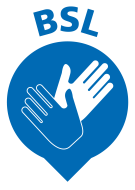Help our staff to feel safe, respected and valued
Our staff are committed to helping and serving their local communities and their lifesaving skills make a difference to thousands of live across the North East every day.
However, despite the crucial role they play in our region, our ambulance crews and control room staff frequently experience abuse from the very people they’re trying to help.
Fear of abuse
From kicking, slapping, headbutting and verbal abuse, to common assault and serious attacks involving knives and weapons, our paramedics and control room staff have experienced a wide range of abuse.
And this has often had a profound effect on their physical and mental wellbeing.
Support and respect
Our staff help to save lives and they deserve the full support and respect of the communities they serve. They should not have to come to work fearing abuse. They should feel valued by those they help, and feel safe to carry out their duties.
If you come into contact with any of our staff, please treat them with courtesy and respect.
Here are some examples of what our staff face as they go about their day-to-day responsibilities.
Dave Puddy
Husband and father of three Dave Puddy has been a paramedic for over 20 years and has suffered abuse in range of situations.
He said: “I’ve been in lots of volatile situations over the years but have only been assaulted two or three times. The first time I was kicked by a drunk female, the second time I was kicked by a drunk male and the third time I was held hostage by a man with a knife.
“You don’t go home and tell your loved ones about your day when things like this happen. You don’t want them to be thinking when you walk out of the door that you might not come back.”
Kerry Cowell
As a 999 call handler, you are trained to try and keep people calm when they are panicking and to understand that a caller may become verbally aggressive when scared. However, the level of abuse that health advisor Kerry Cowell and her colleagues regularly receive is unacceptable.
She said: “Unfortunately, being verbally abused is now the normality as a call handler. I have been sworn at, screamed at, threatened and have also been told by one lovely gentleman that he would be waiting for me after work.
“There is absolutely no need, especially when all we are doing is trying to help. As awful as it sounds, the pandemic came as a little light relief as callers were kind, considerate and thankful for our help. Unfortunately, now it's going back to ‘normal’ and that is not ok.”
Scott Sherrett
Being ex-forces, 50-year-old Scott Sharrett is no stranger to conflict, but had hoped his life on the frontline trying to care for people as a clinical care assistant would feel less like a battlefield than it sometimes does.
He said: “I come to work to help people, not to feel like my life is in danger.
“Only recently an intoxicated patient squared up to me and shoved me into my colleague. Thankfully it didn’t come to anything more, but I reported it in principle. People need to know it is not ok to treat us in this way.”
Helen Treloar
Around two years ago, clinical care assistant Helen Treloar was held at knifepoint by a woman whilst trying to treat her relative.
She said: “She was high on drugs and, as we were on the floor managing the situation, she was getting more and more aggressive.
“I was trying to de-escalate the situation and calm her down but when they get past a certain point there’s nothing you can do. She threatened to peel our face off and said she would follow us and kill us.
“I’ve worked in a prison with some hard men, but I’ve never been as scared as I was then, she was just so unpredictable.
“I love my job, but I should be able to do it without being made to feel scared. We have families at home, we just want to go back to them at the end of our shift.”

